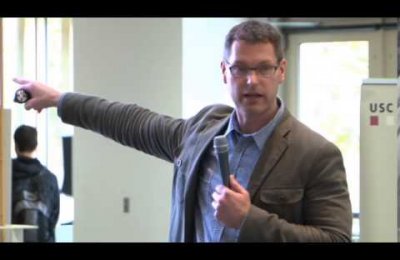With the legalization of marijuana back in the headlines on the eve of 4/20, a new study says that America’s most popular primetime shows reflect growing skepticism about the effectiveness of the 40-year-old War on Drugs, which was debated this week at the Summit of the Americas.
The study also found that primetime dramas stayed closer to reality than common stereotypes about what drugs Americans are abusing and what drug users look like. A video by digital remix artist Joe Sabia featuring the report’s findings on the War on Drugs can be found at www.primetimedrugs.com.
The Primetime War on Drugs & Terror report was released by the Norman Lear Center at USC Annenberg. The study analyzed 49 hours of 10 top-rated TV series with storylines including terrorism or drugs that aired in 2010. Shows included NCIS, CSI: Miami, Law & Order: SVU, House and The Good Wife.
Major findings included:
- In TV storylines about the War on Drugs, drug users are not arrested and drug suspects are often portrayed as morally ambiguous or even heroic.
- In these TV shows, 65% of drug suspects are white, accurately reflecting that the vast majority of drug users (and likely offenders) in the U.S. are white.
- Despite the predominance of African-Americans and other minorities in U.S. prisons for drug violations, most drug manufacturers and dealers in the series studied were white.
- Prescription drug abuse and methamphetamines were depicted three times more often than recreational marijuana.
The full report can be found at www.primetimedrugs.com. The content analysis was carried out by Princeton Survey Research Associates International using an instrument designed by the Lear Center. The ACLU provided funding for the study, which was conducted and released independently.
For more information about the project go to www.primetimedrugs.com. For a video about the report’s findings on the War on Terror, visit www.primetimeterror.com.
The Norman Lear Center is a multidisciplinary research and public policy center studying and shaping the impact of entertainment and media on society. For more information, visit www.learcenter.org.
The USC Annenberg School for Communication and Journalism (www.annenberg.usc.edu) is a national leader in education and scholarship in the fields of communication, journalism, public diplomacy and public relations.








